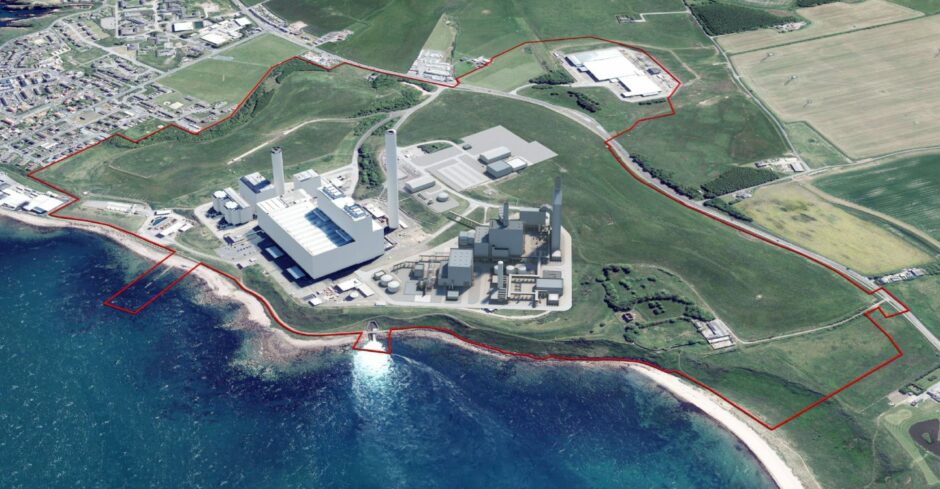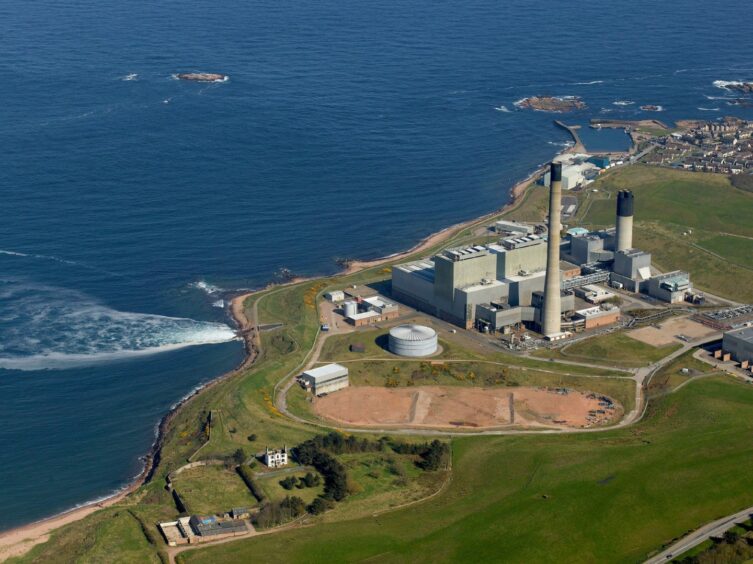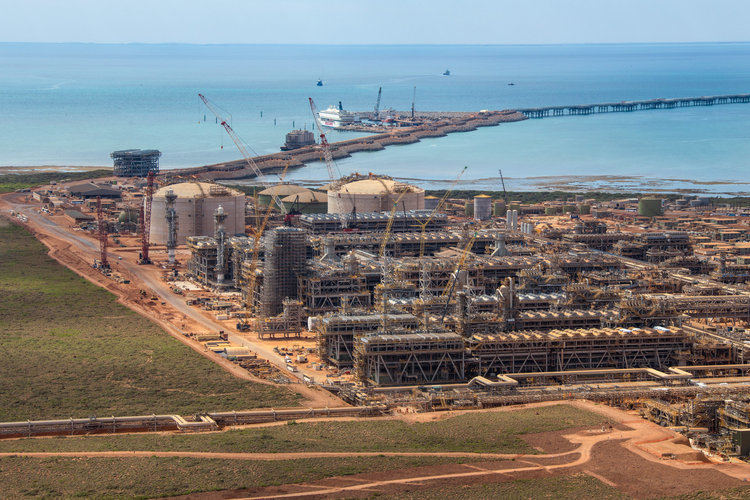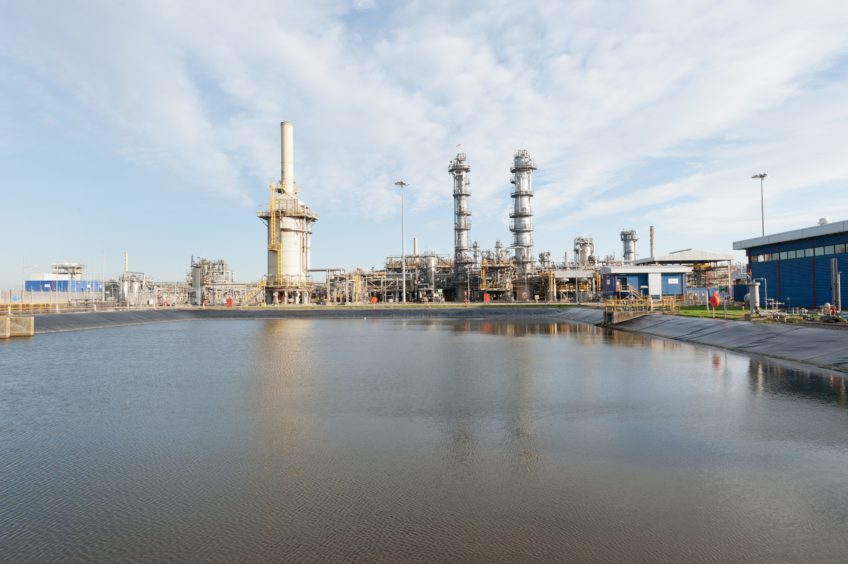
Environmental activists have called on Holyrood to knock back plans for a new low carbon power station, earmarked for Aberdeenshire.
Friends of the Earth Scotland (FOES) claim the proposed Peterhead Carbon Capture Power Station would “lock in” continued use of fossil fuels.
The group also believes it will increase emissions from the site, and has lodged a written objection with the Scottish Government’s Energy Consents Unit.
SSE Thermal and Equinor unveiled plans last year for a “cutting edge” facility at Peterhead.
It would involve capturing carbon released from the Peterhead Power Station – among the biggest emitters in Scotland – and lock them away under the North Sea using infrastructure being developed by the Acorn project.
In the construction phase, the scheme is expected to support as many as 1,000 jobs – many more long-term skilled positions would be created once it became operational.
According to the developers, the 910 megawatt (MW) Peterhead CCS plant would, propel” the UK’s net zero ambitions, meeting 15% of the UK Government’s 10 million tonne target for carbon captured by 2030.
The facility would provide a baseload of power to the national grid, picking up the slack when wind speeds are low and allowing new renewables to be brought online.
A Section 36 planning application was lodged with the Scottish Government earlier this year.
CCS has a history of ‘repeated failure’
FOES claims that carbon capture and storage (CCS) is in its infancy, has “repeatedly failed” to get off the ground, and has called on ministers to formally object to the proposals.
Alex Lee, a climate campaigner at the group, said: “If the Scottish Government were to approve a new gas fired power station at Peterhead that would lock in continued use of fossil fuels for our energy for decades to come. On the face of it, this application is for a huge new gas-power station at Peterhead in addition to the existing one, and risks increasing emissions from the site. Scotland should be moving rapidly to phase out oil and gas for energy production instead of building new gas-fired power stations.
“Like the defeated Hunterston coal-power station before it, this development relies on carbon capture and storage technology coming online at some unspecified point in the future. Carbon capture and storage has a long history of repeated failure and even the Scottish Government has admitted that this technology will not happen this decade. But the whole Peterhead project is to be built on the rotten foundations of this unreliable techno-fix.
“As a rich nation with high historical emissions, Scotland should be rapidly and fairly transitioning away from exploiting volatile oil and gas to instead power our lives with safe, reliable renewables. The Scottish Government has signalled a shift in its position on unlimited fossil fuel extraction.
“With full power to determine whether the new Peterhead gas plant should go ahead or not, it’s time for the Scottish Government to show real climate leadership by rejecting it, and committing to the decisions that need to be made for a just and rapid transition away from fossil fuels.“
CCS – a brief history
While CCS is at an early stage, there are a number of projects across the globe aimed at establishing the emissions busting technology.
And last year the UK Government announced the two winners of its CCS funding competition, with the ambition to have the projects up and running in the next few years.
The Climate Change Committee has also described it as fundamental requirement of hitting net zero by 2050.
Nevertheless, CCS splits opinion and some have questioned whether the technology can capture the quantities of carbon promised.
Issues have also cropped up with the handful of CCS projects currently in operation.
A spokesperson for SSE Thermal said: “The Climate Change Committee has said carbon capture it is a ‘necessity, not an option’ if we’re to meet net zero targets and the UK Government has set clear ambitions to deliver carbon capture infrastructure in four industrial clusters by 2030. The north-east of Scotland is incredibly well placed to be a frontrunner in deploying that technology, securing a just transition for workers and the local community in the process. The Scottish Government also supports the development of CCS.
SSE Thermal ‘taking responsibility’ for emissions
“Peterhead Power Station remains absolutely vital for the electricity system, providing crucial flexibility to keep the lights on while enabling the extremely high penetration of renewable energy in Scotland. Rather than taking the easy decision to sell the station – which would make no difference to its running hours or emissions – we are instead taking responsibility by progressing plans to decarbonise Peterhead
“The new plant, which would connect into the wider CCS infrastructure being developed by UK Government, will ultimately replace the existing station, which we have already said we don’t foresee running unabated beyond the end of this decade. This will deliver huge emissions reductions and the reality is the project will not proceed unless it can capture at least 90 per cent of emissions. Indeed, we are working to secure even higher capture rates.
“The task now is to deliver CCS at Peterhead as quickly as possible, so it can continue to keep the grid stable and accommodate even more renewable energy in the years ahead.”
Recommended for you


 © Aerial Photography Solutions
© Aerial Photography Solutions © Chevron Australia Pty Ltd. via Bloomberg
© Chevron Australia Pty Ltd. via Bloomberg